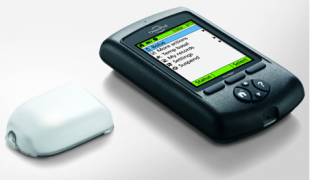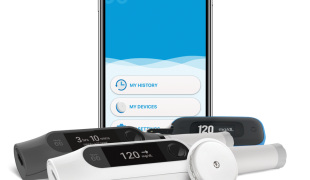- 9001
- 534
- 13
- 15
- 1
- Help Ukraine
About the solution
Type 1 diabetes (T1D) is a devastating chronic disease that is estimated to affect 80 000 new children each year. This disease is characterised by an impairment on the production of insulin by the pancreas, resulting in high levels of blood glucose levels in the body.
When Vivienne’s son, Felix, was diagnosed with T1D, she and her wife, Norma, were confronted with the blood glucose levels monitoring reality. More than monitoring Felix’s glucose levels, the two scientist started recording everything, including food intake, activity levels, emotional states and every blood glucose levels. In addition to this, they even built a small cyborg containing Fitbits, Basis Bands, wireless insulin pumps and continuous glucose monitors. If these wasn’t enough, they also had to hack the data captured by the wearable devices as it was not accessible. When Vivienne and Norma took all these information to the doctors, the reaction was not what they expected.
“It was truly crazy that my son was wearing an entire wardrobe of sophisticated technology, yet his pump would be set by hand once every few months based largely on intuition.”, said Vivienne.
Immediately, Vivienne began building an algorithm that evolved into Jitterbug, a new machine learning system, that was able not only to monitor but also to predict Felix’s glucose levels. As she wasn’t able to commercialize it, she donated all the codes and data to the TidePool Foundation, a nonprofit building open source code for diabetes.
“Every parent in the world should have that one moment where they feel like they have uniquely added something profound to the story of their child’s life.”, Vivienne said.
Adapted from: http://quantifiedself.com/2018/08/women-taking-control-vivienne-ming/
More info: https://su.org/about/faculty/vivienne-ming/
https://vimeo.com/81272562
This solution shall not include mention to the use of drugs, chemicals or biologicals (including food); invasive devices; offensive, commercial or inherently dangerous content. This solution was not medically validated. Proceed with caution! If you have any doubts, please consult with a health professional.
DISCLAIMER: This story was written by someone who is not the author of the solution, therefore please be advised that, although it was written with the utmost respect for the innovation and the innovator, there can be some incorrect statements. If you find any errors please contact the patient Innovation team via info@patient-innovation.com
-
-
365
-
0
-
4088

Diabmate
CAREGIVING
(SELF)-CARE: EATING: Eating independently.
(SELF)-CARE: DRINKING: Drinking independently.
COMMUNICATION: Communicating, whether by speaking, listening, or other means
diabetes type 1
diabetes type 2
Gestational Diabetes
App (Including when connected with wearable)
AI algorithm
Muscle weakness
Excessive thirst or hunger
Fatigue
Enhancing health literacy
Promoting self-management
Managing diabetes
Manage Medication
Preserving Organ Function
Building Supportive Community Relationships
To improve Treatment/Therapy
Preventing (Vaccination, Protection, Falls, Research/Mapping)
Raise awareness
Caregiving Support
Endocrinology
General and Family Medicine
Gynecology and Obstetrics
Internal Medicine
Pediatrics
France
-
-
-
617
-
2
-
12780

OmniPod® - a wireless insulin pump
(SELF)-CARE: EATING: Eating independently.
CAREGIVING
(SELF)-CARE: EATING: Eating independently.
diabetes type 1
diabetes type 2
Gestational Diabetes
Body-Worn solutions (Clothing, accessories, shoes, sensors...)
Enhancing health literacy
Promoting self-management
Restoring heart health
Managing diabetes
Manage Medication
Preserving Organ Function
Promoting inclusivity and social integration
To implement a diagnostic tool
To improve Treatment/Therapy
Preventing (Vaccination, Protection, Falls, Research/Mapping)
Raise awareness
Caregiving Support
Endocrinology
General and Family Medicine
Pediatrics
United States
-
-
-
326
-
0
-
3595

Caregivers create "The Bigfoot Unity System", the first smart insulin delivery system for diabetic people
(SELF)-CARE: EATING: Eating independently.
CAREGIVING
(SELF)-CARE: DRINKING: Drinking independently.
diabetes type 1
Assistive Daily Life Device (to help ADL)
App (Including when connected with wearable)
AI algorithm
Managing diabetes
Manage Medication
To improve Treatment/Therapy
Caregiving Support
Endocrinology
United States
-
 en
en
aliceanner • Fri, 10/18/2019 - 10:44
I find the sharing helpful, I read a book about it here : thelostwaysreview.net